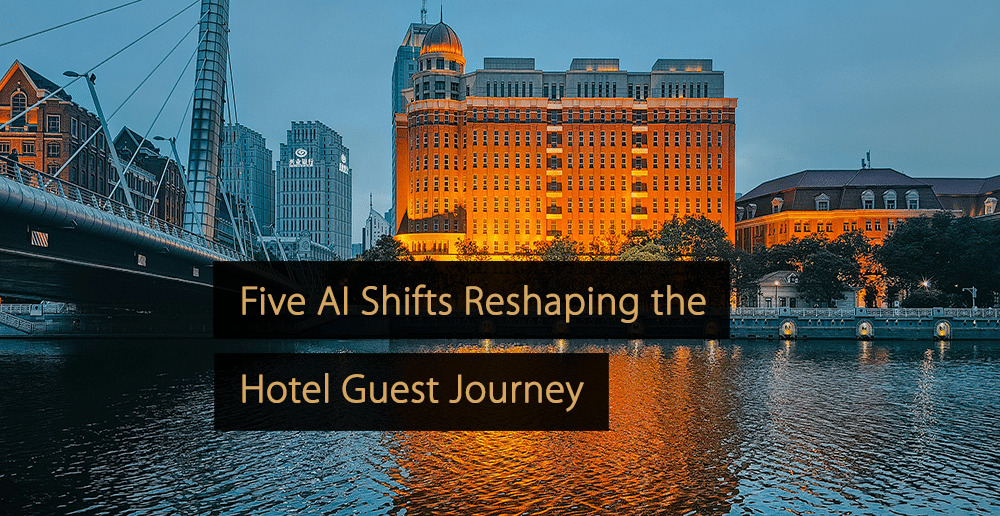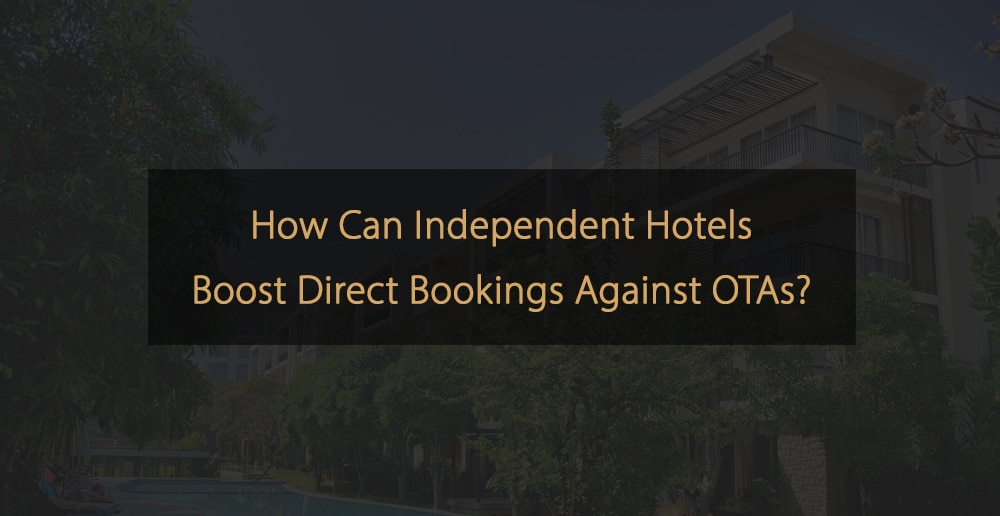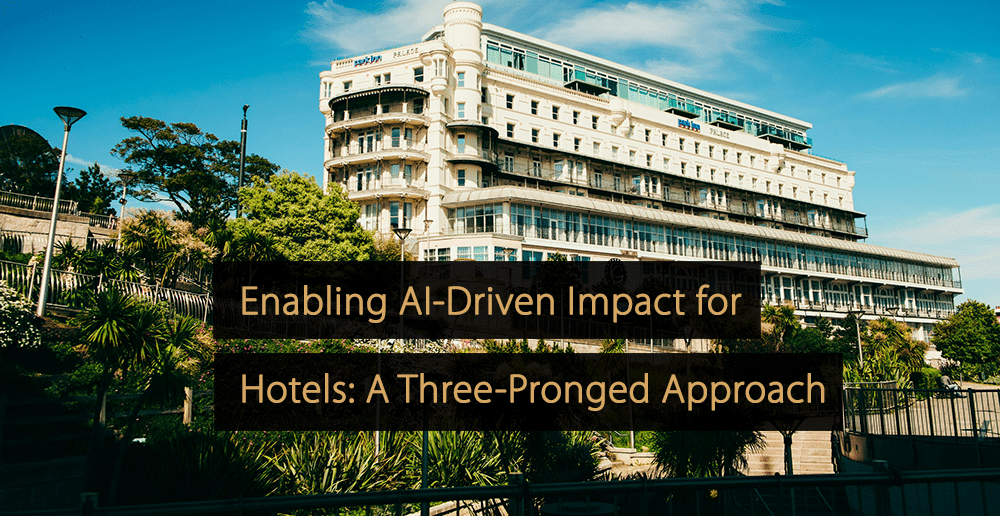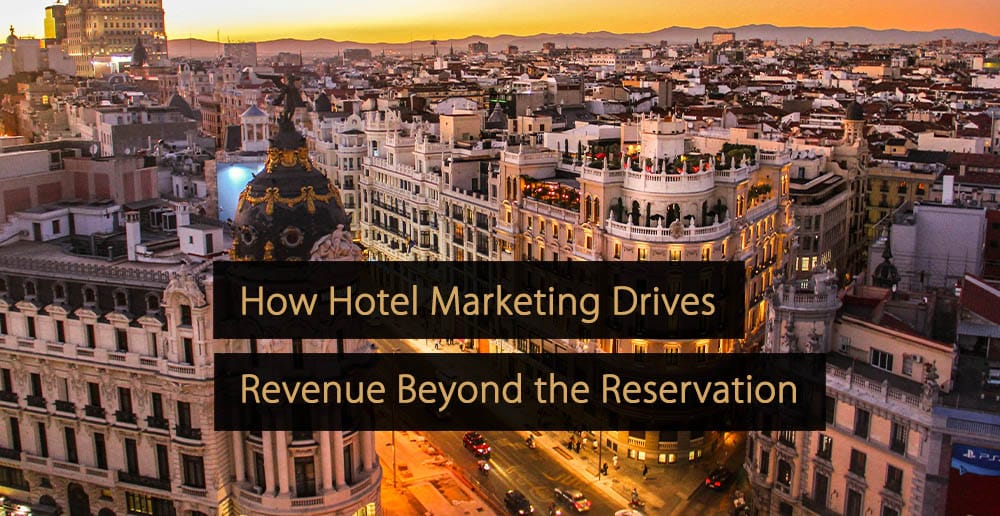Pregunta para nuestro panel de expertos en marketing hotelero
¿Qué acciones clave debería incluir un hotel en su lista de verificación de marketing para garantizar un lanzamiento exitoso durante los meses previos a la inauguración? (Pregunta propuesta por Kamila Zawadzka).
Panel de expertos de la industria
Nuestro panel de expertos de la industria está formado por profesionales de la industria hotelera y de viajes. Tienen conocimientos completos y detallados, experiencia en la práctica o la gestión y son progresistas. Responden preguntas sobre el estado de la industria. Comparten sus conocimientos sobre temas como gestión de ingresos, marketing, operaciones, tecnología y discuten las últimas tendencias.
Nuestro panel de expertos en marketing
- Kamila Zawadzka – Líder de marketing, The Orange Studio
- Michael J. Goldrich – Fundador y asesor principal, Vivander
- Moriya Rockman – Jefe de marketing, Smiling House Luxury Global
- Max Starkov – Profesor adjunto Tecnología hotelera, Universidad de Nueva York
- Haga una pregunta a nuestro panel
- Únase a nuestro panel de expertos
“La apertura de un nuevo hotel requiere un plan de marketing estratégico para crear conciencia de marca, atraer al público adecuado e impulsar las reservas desde el primer día. Las prioridades iniciales deben centrarse en la estrategia de mercado y la identidad de marca, asegurando un posicionamiento claro, una imagen visual impactante y un tono de voz definido.
A medida que se acerca la inauguración, la infraestructura digital —que incluye un sitio web con sistema de reservas, SEO y presencia en redes sociales— debe estar lista, junto con contenido fotográfico y de vídeo de alta calidad para impulsar las relaciones públicas y la publicidad. Una campaña previa a la inauguración a través de anuncios digitales, redes sociales y contacto con la prensa generará expectación, mientras que las colaboraciones y las visitas de prensa ayudarán a asegurar la cobertura mediática.
En el lanzamiento, una campaña de marketing 360° debería impulsar las reservas directas, apoyada por el remarketing y el seguimiento del rendimiento.
Tras el lanzamiento, el marketing de contenidos y las pruebas A/B mantendrán el impulso. En The Orange Studio, de hecho, preparamos una hoja de ruta detallada para las nuevas aperturas; puedes consultar nuestra Lista de verificación para la apertura de hoteles [https://www.theorangestudio.com/ebooks] para obtener un desglose completo.
“Comienza por construir una identidad de marca sólida, Idealmente, entre 12 y 6 meses antes de la aperturaUna narrativa de marca clara y convincente, centrada en lo que hace único al hotel, marca la pauta para todo el marketing futuro. Un resort de lujo podría enfocarse en la exclusividad y el bienestar, mientras que un hotel boutique urbano podría destacar el diseño y la cultura local. Desarrollar una identidad visual coherente, desde el logotipo hasta el tono de voz, garantiza que la marca sea reconocible al instante. Un sitio web optimizado para SEO con datos estructurados es esencial para que los motores de búsqueda y las herramientas basadas en IA puedan descubrir y posicionar fácilmente la propiedad.
Seis meses antes de la inauguración: Es hora de establecer una presencia digital más allá del sitio web de su nuevo hotel. Configurar y verificar su perfil de Google My Business, TripAdvisor y los listados en metabuscadores ayuda a aumentar la visibilidad. Lanzar canales en redes sociales y compartir contenido exclusivo genera interés inicial, mientras que los anuncios segmentados impulsan el conocimiento de la marca. Ofrecer beneficios exclusivos para quienes se registren con anticipación crea expectación.
A tres meses de distancia: Generar expectación mediática se convierte en la prioridad. Una nota de prensa bien redactada, junto con una inauguración discreta o un evento para los medios, puede asegurar cobertura en las principales publicaciones de viajes. Invitar a influencers y periodistas de viajes a una estancia de preapertura ayuda a crear contenido y reseñas auténticas.
Aproximadamente dos meses antes de la inauguración: El enfoque se centra ahora en impulsar las reservas anticipadas. Ofrecer tarifas exclusivas de preapertura, mejoras de habitación gratuitas y otros incentivos para reservas directas anima a los huéspedes a reservar directamente. Las campañas de correo electrónico personalizadas pueden convertir el interés inicial en reservas confirmadas.
A un mes de distancia: La optimización para IA y búsqueda por voz garantiza la visibilidad a largo plazo. Una estructura web con marcado de esquema enriquecido y preguntas frecuentes (FAQ) permite que las herramientas de IA extraigan información precisa. Los chatbots con IA gestionan las consultas de reservas y las oportunidades de venta adicional, ofreciendo una experiencia de reserva fluida.
El lanzamiento debe ser impecable. Capacitar al personal para brindar una experiencia consistente y acorde con la marca ayuda a crear primeras impresiones positivas. Animar a los huéspedes a dejar reseñas en Google y TripAdvisor genera credibilidad. El monitoreo en tiempo real de los comentarios de los huéspedes permite realizar ajustes rápidos y refuerza el impulso positivo inicial.
“1. Conócete a ti mismo y descubre qué te hace especial.
Antes de emprender cualquier estrategia de marketing, es fundamental que el hotel comprenda claramente su identidad de marca. ¿Qué lo distingue de la competencia? ¿Cuáles son sus ventajas competitivas únicas? Ya sea el lujo, la sostenibilidad o una experiencia inigualable, definir qué hace especial a su hotel es la base de toda campaña de marketing.
2. Ponte en la piel de tu cliente ideal
Una vez que comprendas tu marca, es hora de pensar en tu cliente ideal. ¿Quiénes son, cuáles son sus intereses y qué los motiva a elegir tu hotel? Para crear un marketing eficaz, debes pensar como tu cliente: saber qué comen, beben, leen y cuándo duermen. Comprender estos detalles te ayudará a crear contenido personalizado y relevante que conecte con tu público objetivo. Por ejemplo, si tu cliente ideal es un viajero de lujo, destaca tus servicios a medida, tus ofertas de bienestar y tus experiencias exclusivas. Si te diriges a viajeros de negocios, céntrate en servicios como espacios para reuniones y servicios de productividad.
3. Conoce tu mercado e innova en torno a él.
Comprender tu mercado es fundamental. Investiga a la competencia local, identifica las tendencias del mercado y adapta tu marketing para satisfacer esas necesidades. La innovación es clave: ¿qué puedes ofrecer que los demás no? Quizás una experiencia tecnológica innovadora para el huésped, una experiencia culinaria local única o un enfoque en la sostenibilidad. Ser innovador te ayuda a diferenciarte y a satisfacer las demandas cambiantes de los viajeros.
4. Generar reconocimiento de marca desde el principio
Comienza a generar reconocimiento de marca meses antes de la apertura del hotel. Crea una sólida presencia en redes sociales, establece alianzas con influencers locales y participa en campañas de relaciones públicas que cuenten tu historia. Utiliza avances, contenido exclusivo y adelantos para generar expectación. Esta exposición temprana puede generar entusiasmo e impulsar las primeras reservas.
5. Aprovecha las ofertas y promociones previas a la apertura.
Una vez que se empiece a generar interés, considere ofrecer promociones para reservas anticipadas o paquetes especiales para los huéspedes que reserven antes de la inauguración oficial. Esto puede crear urgencia y animar a la gente a reservar, además de generar valiosa publicidad de boca en boca.
“La comercialización de un nuevo hotel debería comenzar mucho antes de la ceremonia de inauguración oficial.
- 18-12 meses antes de la apertura:
- Crear una página web y perfiles en redes sociales previos a la apertura, describiendo la propiedad, las comodidades y los servicios, y publicar actualizaciones periódicas sobre la construcción.
- 12 meses antes de la apertura:
- Actualiza la página web previa a la inauguración con descripciones y maquetas visuales de las futuras capacidades de tu propiedad para (a) reuniones/grupos corporativos, (b) eventos sociales y bodas, y (c) grupos SMERIF. Incluye la mayor cantidad de detalles posible, como planos, diferentes configuraciones, equipo audiovisual, información sobre la conexión Wi-Fi, etc.
- Optimice el contenido de su sitio web para SEO y AIO (búsqueda con IA): Contenido original y de nivel editorial en todo el sitio web del hotel; SEO on-page, enlaces entrantes/backlinks y citas de sitios web de alta autoridad; SEO técnico (por ejemplo, velocidades de descarga page inferiores a 2 segundos).
- Instale la funcionalidad de solicitud de propuestas (RFP) en el sitio web con capacidades de respuesta inmediata a la información.
- Organiza un sorteo con premios dirigido a organizadores de eventos para dar a conocer el hotel y sus servicios, y generar expectación en la comunidad. Recopila datos de los participantes y crea una sólida lista de correo electrónico con suscripción voluntaria.
- Lanza campañas dirigidas a organizadores de reuniones en los principales mercados emisores: campañas de marketing en buscadores centradas en tu producto para reuniones. Los organizadores de reuniones buscan una serie de palabras clave relacionadas con reuniones, por ejemplo, «hotel para conferencias en el centro de Houston», etc.
- Únase a las iniciativas de marketing de Cvent.
- 6 meses antes de la apertura:
- Actualizar el sitio web con contenido para huéspedes transitorios (viajeros corporativos transitorios) y los principales públicos objetivo de ocio (familias, parejas, personas mayores, etc.).
- Lanza iniciativas de marketing de contenidos en torno a tus productos para reuniones, viajes en grupo y ocio para captar la atención de potenciales organizadores de grupos y huéspedes.
- Lanzamiento de ofertas especiales, paquetes y promociones. Para organizadores de reuniones: Paquetes completos para reuniones. Para viajeros: ofertas especiales de preapertura, ofertas por tiempo limitado, etc.
- Organiza un sorteo previo a la inauguración para viajeros de negocios y de ocio con grandes premios como estancias VIP y un número suficiente de otros premios. Recopila los datos de los participantes y crea una sólida lista de correo electrónico con suscripción voluntaria.
Haga una pregunta y únase a nuestro panel de expertos
¿Le gustaría que nuestro Panel de Expertos de la Industria respondiera una pregunta? ¿O le gustaría unirse a nuestra comunidad de expertos y compartir su experiencia, conocimientos y conocimientos con otros profesionales de la industria? A través de los botones a continuación, puede enviar una pregunta o enviar una solicitud para formar parte de nuestro panel de expertos.
Más consejos para hacer crecer su negocio
Revfine.com es la plataforma de conocimiento líder para la industria de la hospitalidad y los viajes. Los profesionales utilizan nuestros conocimientos, estrategias y consejos prácticos para inspirarse, optimizar los ingresos, innovar los procesos y mejorar la experiencia del cliente.Explore el asesoramiento de expertos sobre gestión, marketing, revenue management, operaciones, software y tecnología en nuestro sitio web dedicado. Hotel, Hospitalidad, y Viajes y Turismo categorías.











Leave A Comment